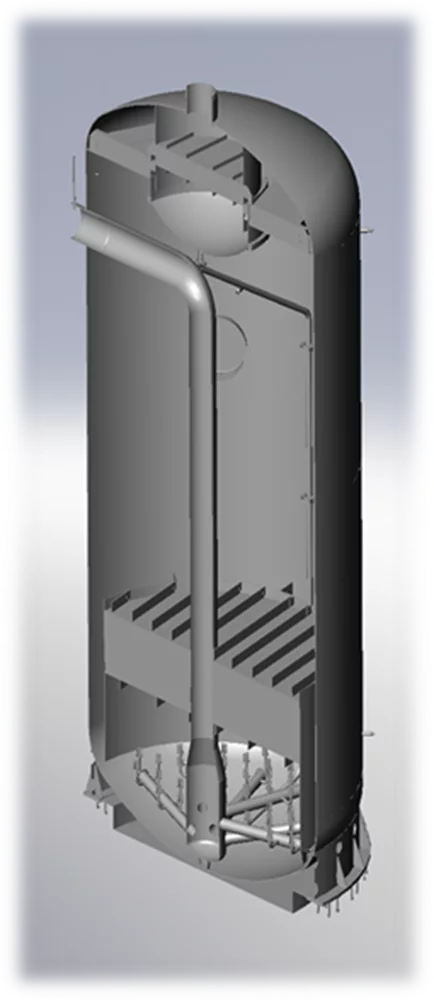
PASSAM Project: European collaboration for studies on passive and active systems towards enhanced severe accident source term mitigation
In case of a severe accident in a Nuclear Power Plant (NPP) fission products are released from the degraded fuel and may reach the environment if their confinement is lost and/or bypassed. Given the high radio-toxic nature of fission products for environment and population, it is necessary to avoid - or to drastically reduce - their release. This highlights the importance of relying on efficient mitigation systems capable of reducing as much as possible any accidental release. This was highlighted after the accident of March 2011 at the Fukushima Daiichi NPP.
The PASSAM project was initiated in the frame of the 7th framework programme of the European Commission. Coordinated by IRSN, this four year project (2013 - 2016) involves nine partners from six countries, coming from diverse organization types: Technical Safety Organizations (IRSN), research (CIEMAT, CSIC, PSI, RSE, VTT), university (U. Lorraine) and utilities/industry (EDF, AREVA). They all have strong experience and knowledge on severe accidents and more specifically of Filtered Containment Venting Systems (FCVS).
Current NPPs are furnished with safeguards based on the Design Basis Accident and some extensions to cope with accidents beyond the design bases. Consequently, there are a number of mitigation systems within a NPP, both to accommodate the energy release and to deplete most of potential radioactive emission to the environment. Sprays, suppression pools, high efficiency particle filters, etc. are among those contributing to source term attenuation.
The PASSAM project is of an R&D experimental nature, and it aims at:
- exploring potential enhancement of existing source term mitigation devices,
- demonstrating the ability of innovative systems to achieve larger source term attenuation.
As the outcome of the project, a valuable database will be available to help the utilities on the decision of implementing and/or enhancing mitigation systems of their reactors, and for improving severe accident management measures. Reliability of each type of investigated mitigation system will be evaluated to reduce the risk of environmental consequences in case of a severe accident.
Based on the understanding gained from in-depth analysis of the experimental results, simple models and/or correlations which are easy to be implemented in accident analysis codes may be developed. With the developed models, the capability of simulating severe accident sequences and developing severe accident management guidelines will be improved.
The PASSAM project has been finished in 2016.
T. Albiol, L. Herranz, E. Riera, C. Dalibart, T. Lind, A. Del Corno, T. Kärkelä, N. Losch, B. Azambre, C. Mun, L. Cantrel
Annals of Nuclear Energy 116, 42 (2018)
DOI: www.sciencedirect.com/science/article/pii/S0306454918300781


